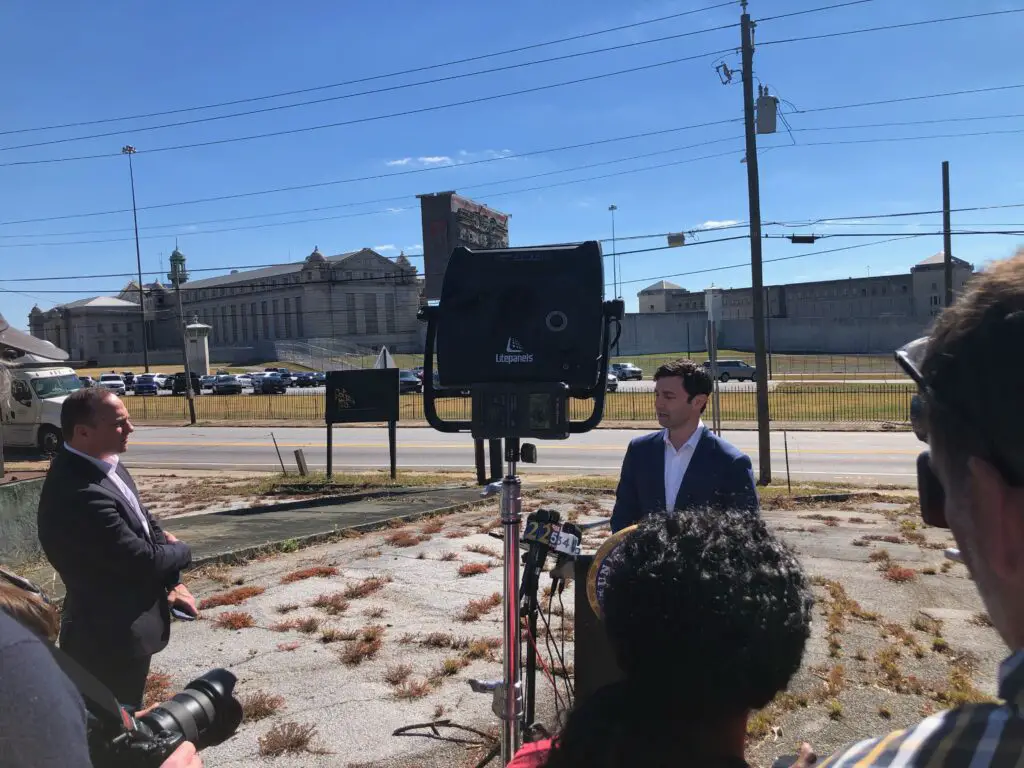The state agency in charge of Georgia’s foster-care system has responded to allegations of failure to protect children with a letter harshly critical of an investigation launched earlier this year by U.S. Sen. Jon Ossoff, D-Ga.
“The misstatements, omissions and failure of the subcommittee to request relevant information or responses from the (Division of Family and Children Services) in advance of its publicized hearings and press conferences leave the unfortunate impression that the goals of this investigation are political,” several lawyers for the agency wrote Wednesday in a letter to Ossoff.
The Senate Human Rights Subcommittee, which Ossoff chairs, held two hearings last week and this week to hear testimony on the state agency’s treatment of foster children. At the first hearing, he unveiled a previously undisclosed internal audit that revealed the Georgia Division of Family and Children Services (DFCS) failed in 84% of cases brought its attention to address risks and safety concerns.
During the second hearing, two juvenile court judges said DFCS Director Candice Broce suggested some children with mental and behavioral problems be locked up in juvenile detention centers in violation of state law while the agency looked for somewhere to house them.
Ossoff also held a news conference during which he reported nearly 1,800 children in state custody were reported missing between 2018 and last year.
In their letter, the DFCS lawyers wrote that the subcommittee never shared with DFCS the information Ossoff obtained from the National Center for Missing and Exploited Children, leaving DFCS no way to respond.
“It is not clear whether the numbers the chairman shared with the press account for children who were recovered or children who aged out and refused to sign back into foster care (even though they were located),” the letter stated.
“What we do know is that a recent report by the inspector general for the U.S. Department of Health and Human Services found that Georgia’s rate of foster children reported missing is lower than its neighboring states of Tennessee, Alabama, and South Carolina, and is less than half the rate of a number of other states – including New York, Ohio, Maryland, Nebraska, Delaware, and Kansas.”
The DFCS lawyers went on to deny the juvenile court judges’ testimony about putting children behind bars.
“Commissioner Broce did not encourage judges to violate state law, and it has never been DFCS policy to punish a child with complex needs through detention,” they wrote.
The letter also outlined the progress DFCS has made in reducing the number of children housed in hotels or DFCS offices and the need for the General Assembly to increase the agency’s funding.
“Ultimately, the courts and DFCS are in this fight together,” the lawyers wrote. “(They) must stay focused on productive efforts to improve Georgia’s child welfare system.”

Dave Williams | Capitol Beat News Service
Dave Williams is the Bureau Chief for Capitol Beat News Service. He is a veteran reporter who has reported on Georgia state government and politics since 1999. Before that, he covered Georgia’s congressional delegation in Washington, D.C.


